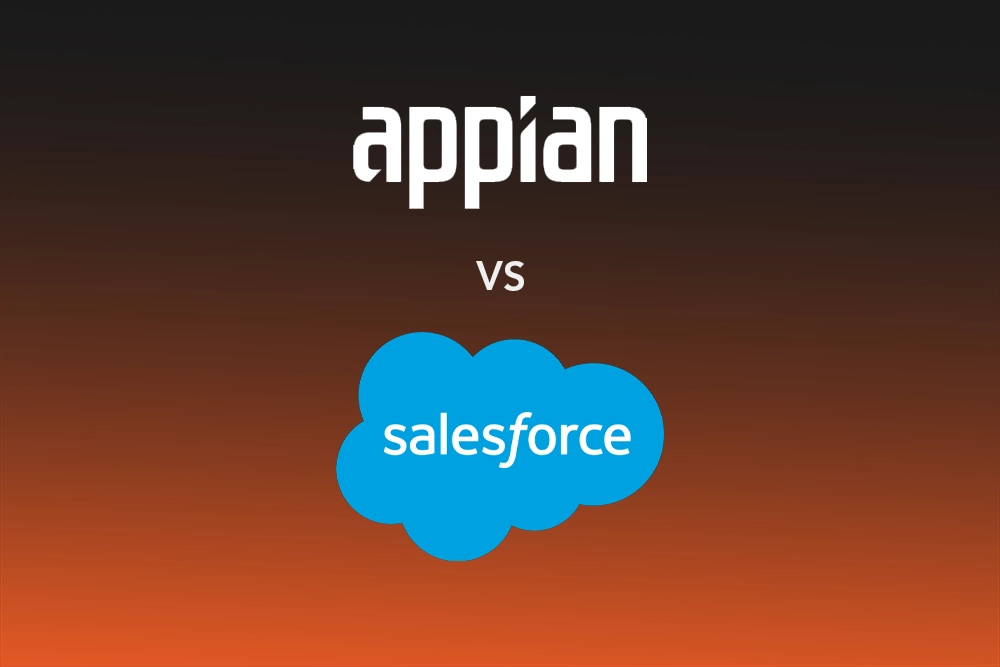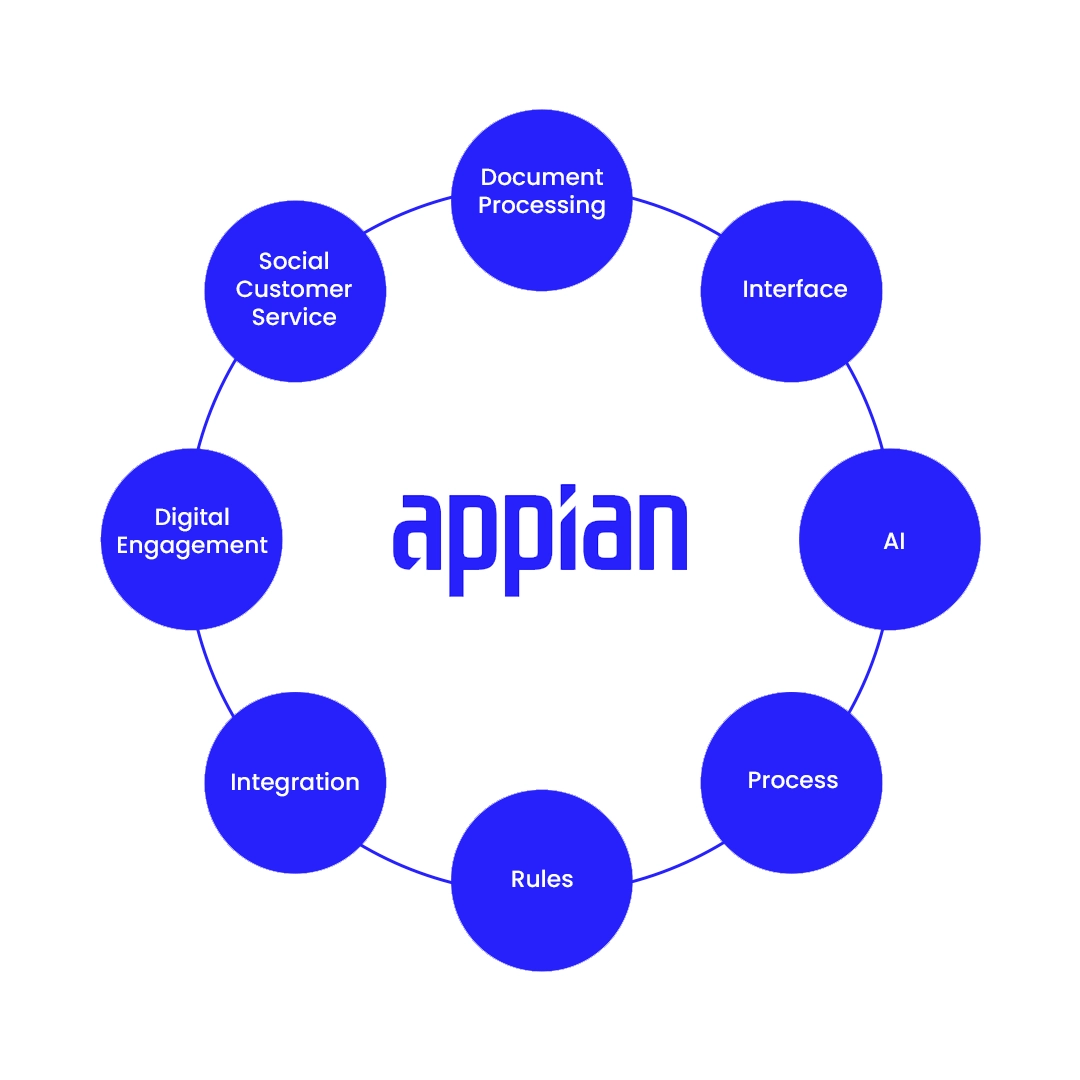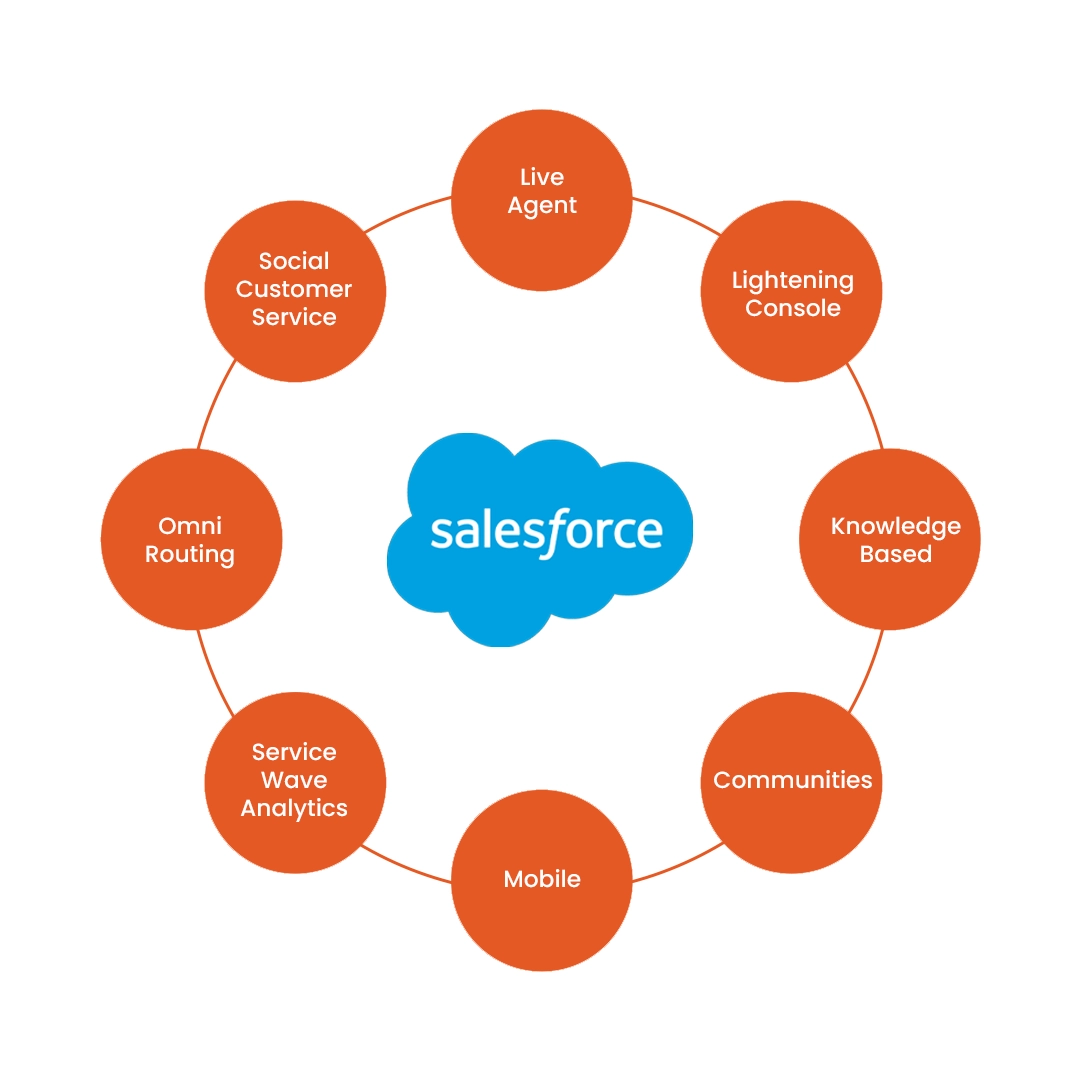
Have you ever felt that your business tools are dragging you down? With so many software, manual steps, and old systems can slow productivity. As a result, work may take longer than expected. Furthermore, the entire task may be slow. The systems may not integrate properly. In addition, there are too many tasks that need to be done manually.
Consequently, this can waste resources and drain money. Not only that, but it could also lead to employee discontent. Today's corporate requires intelligent systems that will facilitate precision and speed.
To address these challenges, both Appian and Salesforce automate processes to reduce manual labor. However, their approaches differ. Specifically, Appian helps to automate tasks making work easier. For managing customers, sales and support is best with Salesforce.
Now which of these solutions would be more effective? In this guide, you will explore Appian vs Salesforce. We will discuss the differences including Salesforce Lightning vs Appian. By the end, you’ll be able to select which works best for your business.
Ready? Let’s go!

Appian offers a low-code automation platform. Specifically, It helps businesses automate their work processes. In other words, it enables companies to create applications with minimal coding effort. As a result, this improves efficiency and speed.
In addition, Appian has smart features like AI and RPA (Robotic Process Automation). For better organization, businesses can use case management which Appian offers. Moreover, Appian’s automation capabilities not only assist executives but also help to solve customer cases. Ultimately, this enhances overall business productivity.

Salesforce is a cloud platform that effectively assists businesses in serving their clients better. It is mostly known today as CRM software because it greatly benefits the business in managing customer relationships.
Salesforce has Sales Cloud and Service Cloud applications. Moreover, Salesforce Lightning allows corporations to customize easily and quickly. They can modify it with their unique requirements.

Here’s a quick feature comparison on Appian vs Salesforce
Selecting the ideal platform is ultimately determined by a business's requirements. To gain deeper insight let's take a look at Salesforce vs Appian . Additionally, we will explore which features stand out.
Appian simplifies development. It offers drag and drop capabilities along with pre-made templates. Moreover, Appian concentrates on low-code development and workflow automation. It requires minimal programming effort. Additionally, its strong BPM attributes aid the construction of applications.
Similarly, Salesforce provides low-code enabling capabilities with its Lightning Platform and Flow Builder. These tools are specifically designed for CRM activities. However, customization is difficult for non-technical users. Thus this poses a challenge for anyone unfamiliar with the Salesforce system.
Appian effectively uses automation combined with artificial intelligence. As a result, it significantly enhances the efficiency of business processes. Furthermore, it also offers intelligent document processing (IDP). In addition, workflow automation boosts the effectiveness.
Likewise Salesforce equips customers with Einstein AI for predictive analytics. Moreover, its automation assists in sales and service activities. Additionally, it is responsible for interfacing with customers through Einstein GPT. Thus, insights powered by AI make their use more effective.
Salesforce is undoubtedly the leader in CRM due to its sales tools along with marketing and customer support. Moreover, users can monitor business interactions. This is followed by the generation of AI-powered insights during multi-channel services and engagement.
On the other hand Appian permits customer workflows but does not offer sophisticated CRM services. Additionally, it is not primarily a CRM.
Appian vs Salesforce Lightning both offer a strong integration system. However, Salesforce integration is more CRM centric. Appians is designed for enterprise level automation.
With Appian, integrations are relatively easy. The system links with enterprise software like SAP, Microsoft, and Salesforce. There are APIs. Integration is enhanced by RPA (Robotic Process Automation).
The appExchange marketplace boasts thousands of integrations. It means the Salesforce ecosystem is highly expansive. Additionally, with MuleSoft, connecting systems becomes even more effortless. As a result, businesses can merge many platforms without much difficulty.
Appian offers an easy-to-use platform with a simple interface. Moreover, everything is automatic and approachable. As a result, development is a lot less hassle because of low-code tools. Additionally, business users only need some basic training.
On the other hand, it has a great number of advanced features. Therefore it is highly complex. However, functionality can be improved with Lightning Experience. Consequently, users new to the platform may find the interface complicated. Thus, training is aimed at getting people to know how the features work.
security offered by Appian is strong as it complies with major standards. For instance, SOC 2, GDPR, HIPAA, and FedRAMP are part of it.
Salesforce data is protected by encryption, and even better. Salesforce features zero-trust architecture which further enhances security. Additionally, the company also claims the use of ISO 27001, and HIPAA alongside GDPR for compliance. This in turn increases their level of security further.
In the case of Appian vs Salesforce, both companies offer a wide price range. It specifically depends on features and scope as well as the size of the business. Here’s an overview of their prices, returns, and risks regarding expenses in other areas.
Appian primarily operates on a per-user or per-process pricing structure. Which is primarily designed for large enterprises looking for automation and workflow management. Additionally, it offers low-code solutions.
Moreover, Appain's structure is particularly ideal for complex workflows. It works best for a small number of users. Unlike most per-user pricing offered by competitors.
Salesforce pricing varies significantly depending on the product being purchased (Marketing Cloud, Service Cloud, Sales Cloud, etc.). Here are the average prices for Sales and Service Cloud which is the most analogous with Appian.
Moreover, additional features are provided with Salesforce such as automated CRM, marketing, and AI powered. An analytic dashboard not only makes user pricing higher but also makes it more advantageous.
Here’s a comparison table for Appian and Salesforce highlighting the pros and cons of each platform:
Small businesses benefit from Salesforce's lower starting price. While enterprises that seek workflow automation may find Appian’s pricing more justifiable.
Your business requirements will determine whether you prefer Appian or Salesforce.
In short, process automation, it's Appian all the way. However, for full CRM features aimed at increasing sales and customer interaction, you can't go wrong with Salesforce.
Salesforce is the strongest choice if you want a fully featured CRM. Not only is it great for sales, marketing, and automation, but also businesses can leverage AI to optimize performance. As a result, with so many features, the efficiency of operations is unparalleled.
On the other hand, select Appian if you are looking for workflow automation and BPM. More specifically, it helps to lower the cost of process enhancement and development. Therefore, it is perfect for large corporations looking for a low-code platform.
Need assistance? Get in touch with PixelConsulting today! We offer professional Appian and Salesforce services to help ensure business growth and enhanced operational efficiency.
Neither is necessarily better than the other, rather, it all depends on your needs. On one hand, Appian offers low-code automation and process management. On the other hand, Salesforce is better for CRM automation and customer-centered workflows.
Yes! In fact, Appian can be integrated with Salesforce quite easily. Appian is designed for low-code automation and CRM for a great experience.
No, Appian is not a CRM system. However, it can integrate with Salesforce or other CRMs in order to enhance workflow automation.
Not quite. Although Salesforce is a CRM and customer engagement platform. First, it does offer some low-code application capabilities. Appian was specifically designed for low-code process automation which means it does this far more effectively than Salesforce.
PixelConsulting services include Salesforce user adoption, automation, and AI solutions. Additionally, we offer Integration development to help businesses optimize their process.
Booking a consultation is quick and simple! Go to the Contact Us form or give us a call. As soon as you reach out, our PixelConsulting experts will guide you through this process. Additionally, they will also let you know when the next available session is.
Yes! Not only do we provide implementation services but we also go the extra mile. We offer post-implementation support to ensure continued success. This includes system maintenance and training. So that your staff can fully utilize the provided solution.
Finally, the ball is in your court! So, go ahead and compare the Appian vs Salesforce side by side. Schedule a consultation, or if you prefer share your thoughts with us via email!
Read Also : Salesforce Errors